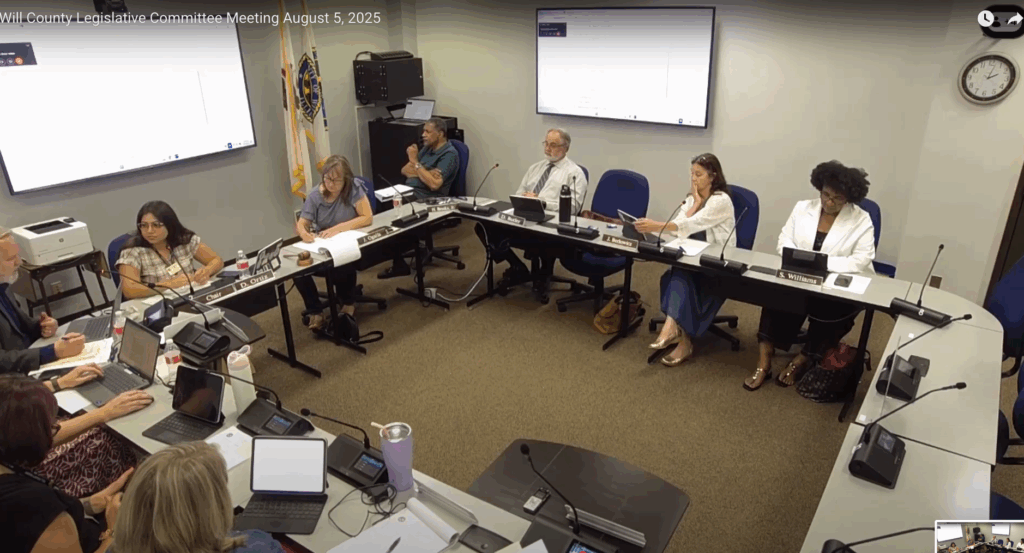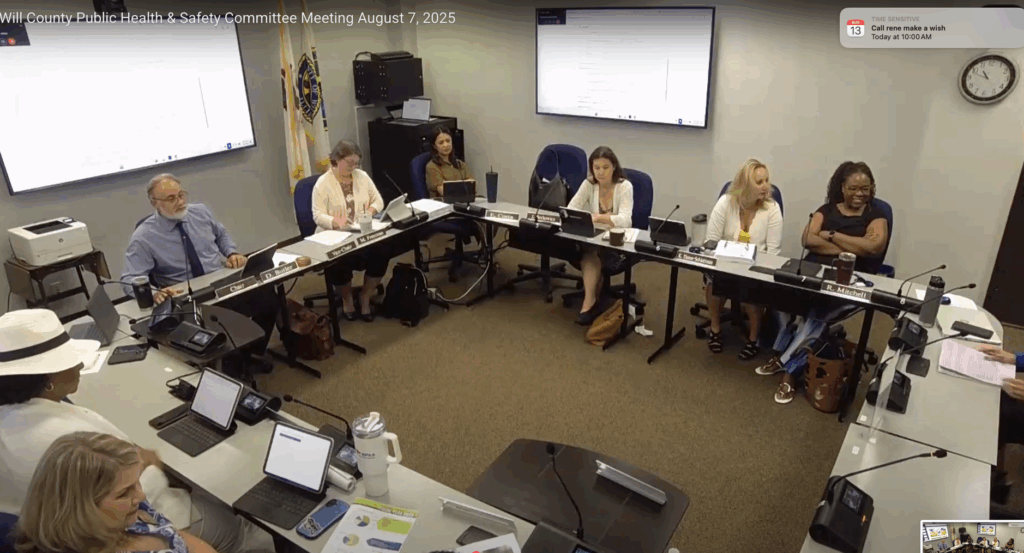
High superintendent pay fuels debate over Illinois school consolidation
(The Center Square) – A new Illinois Policy Institute report reignites debate over how schools are run and how much top administrators are paid, but one national education expert warns district consolidation could make things worse, not better.
The report shows the 10 highest-paid superintendents in Illinois earned over $4.2 million in 2024, with many overseeing only one or two schools.
Nearly half of the state’s 866 districts serve fewer than three schools, a structure the institute says drives up administrative costs and taxes.
But education policy expert Tony Kinnett, a former teacher and administrator, says Illinois may be missing the mark.
“While I understand the desire to consolidate and shift a larger number of students and buildings under one larger superintendent salary, that is not a panacea for fixing education practices,” Kinnett told The Center Square. “And in the particular case of Illinois schools, it wouldn’t actually improve student outcomes just by consolidating districts under a unitary measure.”
House Bill 2966, signed Aug. 15, allows the State Board of Education to fund district reorganization studies.
Illinois Policy’s data show big pay gaps with little correlation to results.
Rich Township’s superintendent earned $423,000 in 2024 while just 10% of students read proficiently and 4% met math standards. At Stevenson High in Lincolnshire, the superintendent made $387,000 with over 70% proficiency in both subjects.
Chicago Public Schools CEO Pedro Martinez, overseeing 600 schools and 300,000 students, ranked 19th in pay. In 2024, 30.5% of CPS students in grades 3-8 met reading proficiency standards on the state exam.
Illinois Policy justifies its call for consolidation by noting that, “without a consistent compensation” system for superintendents, their hefty salaries ultimately “burden taxpayers, students and teachers alike.”
Supporters of district consolidation say merging administrations could reduce these high costs and redirect funds to classrooms, noting that Illinois has the highest property taxes in the nation while other states with larger districts spend less on administration.
Kinnett said bureaucracy, not district size, is the problem.
“As someone who both taught and later served as an administrator in the smallest and largest school districts in the state of Indiana, and have advised on a number of school board audits around the country, I can say that consolidation and deconsolidation are often just maneuvers used to shift problems that are growing or already present in a district,” said Kinnett.
Kinnett suggested that Illinois would benefit more from breaking school districts into independent, charter-style systems similar to Louisiana’s model.
“I was the science director over multiple schools in the Indianapolis Public School system, a role created to manage a large number of high schools, middle schools, and elementary schools all operating under one unified district,” said Kinnett.
While both Kinnett and the Illinois Policy Institute agree Illinois spends too much on administration and too little on students, they sharply differ on solutions. Kinnett’s prescription is choice and decentralization, not consolidation.
“Consolidation doesn’t necessarily assist in general bloat. You just move some superintendent salaries among new administrative staff members,” said Kinnet. “It’s a decent idea, but I very much disagree with the Illinois Policy’s assertion that consolidation is a great measure and always improves performance. I think that’s a blanket sweep that may sound nice to get a point across, but I very much doubt that’s the best solution here.”
Latest News Stories
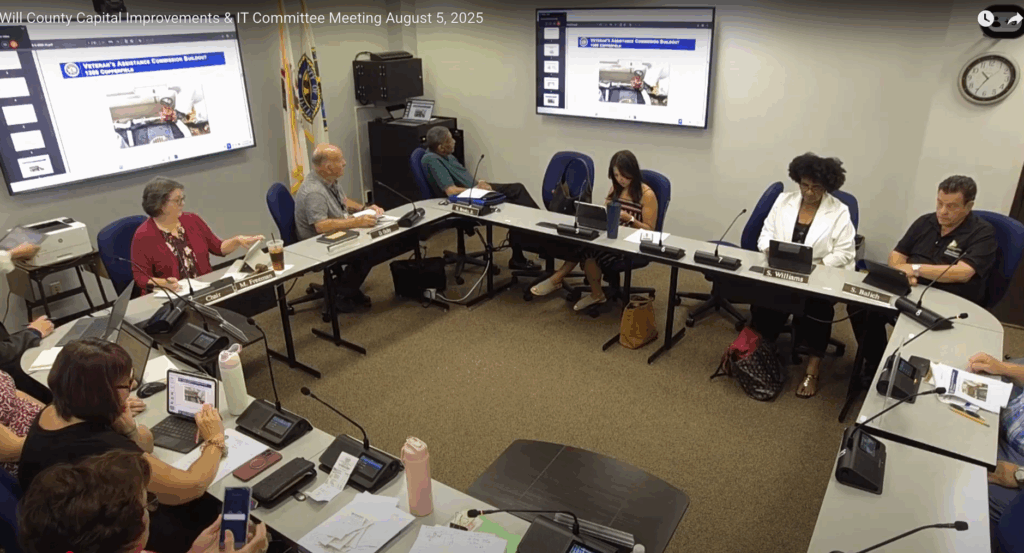
Will County’s “First-in-Nation” Veterans Center to House Workforce Services, Sparking Debate
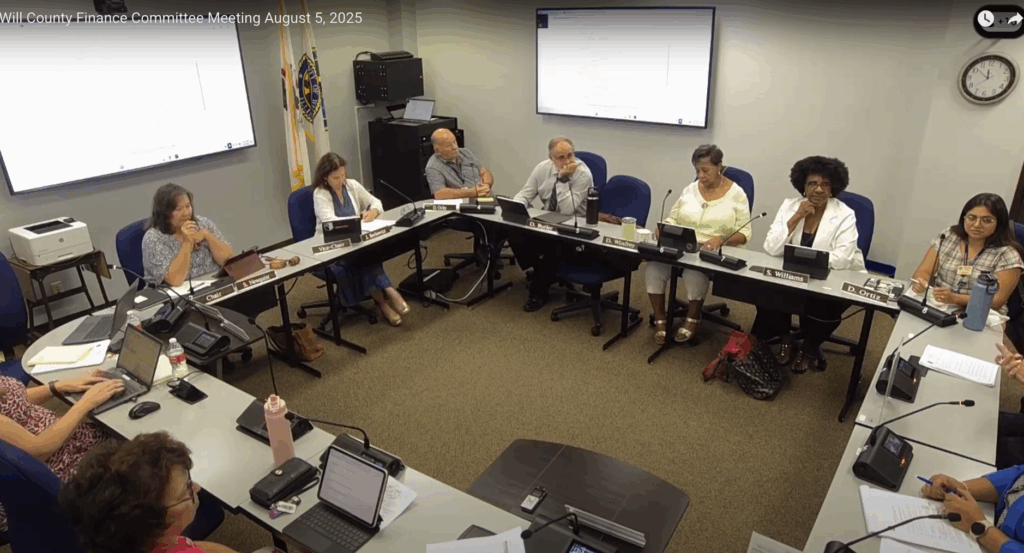
Improved Vendor Service Creates $1.2 Million Shortfall in Sheriff’s Medical Budget
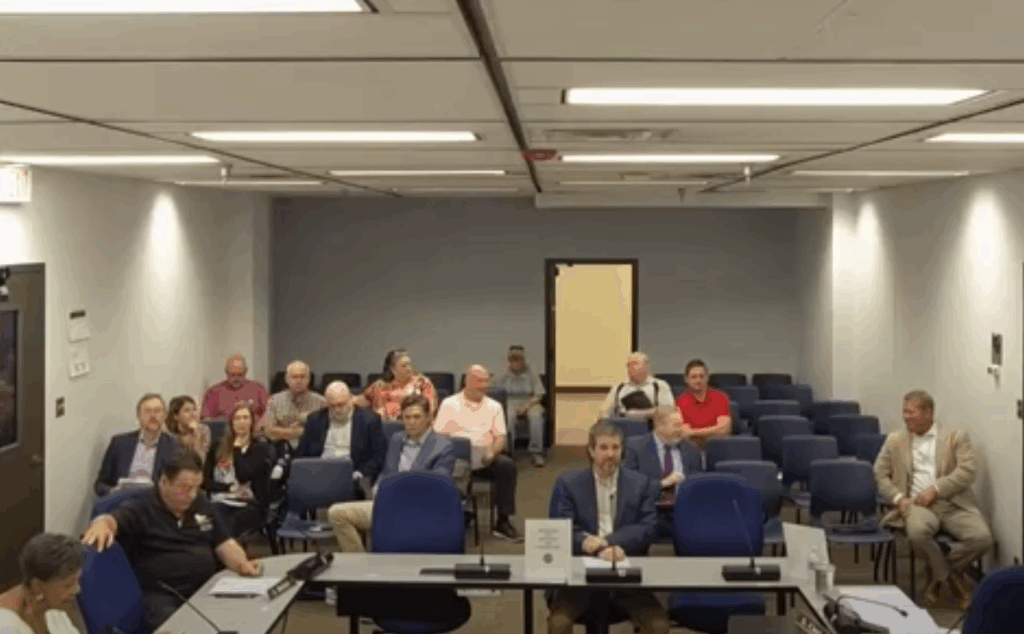
Will County Public Works Committee Unveils 25-Year Transportation Plan, Projects $258 Million Gap
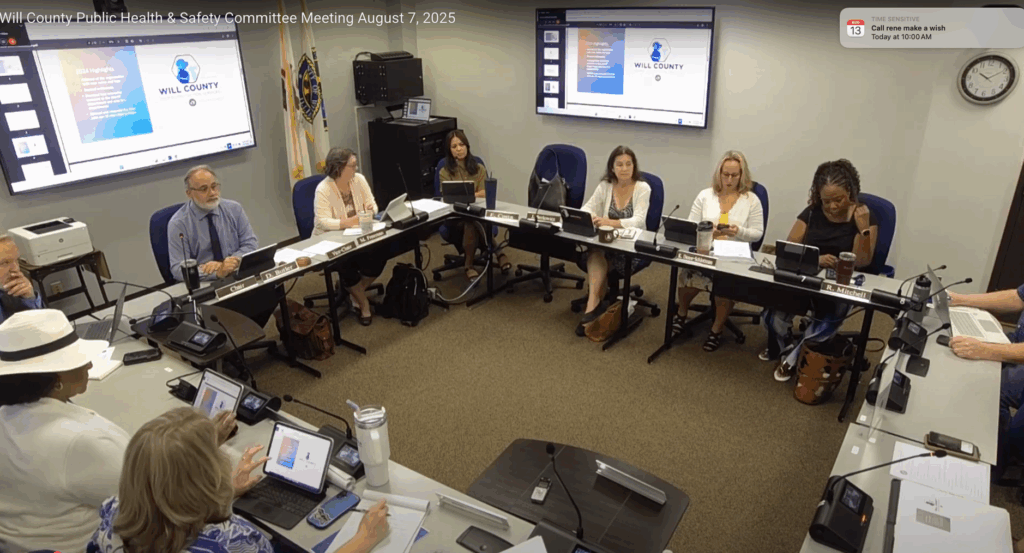
Will County Animal Protection Services Seeks New Facility Amid “Gaping Wound” of Space Crisis
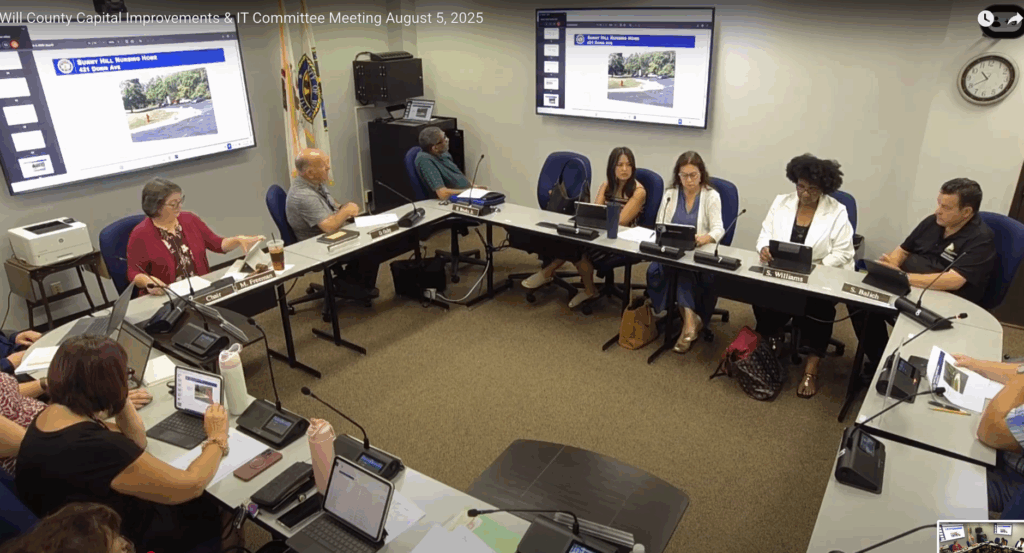
Board Confronts Animal Services Crowding, Explores Future Facility Options
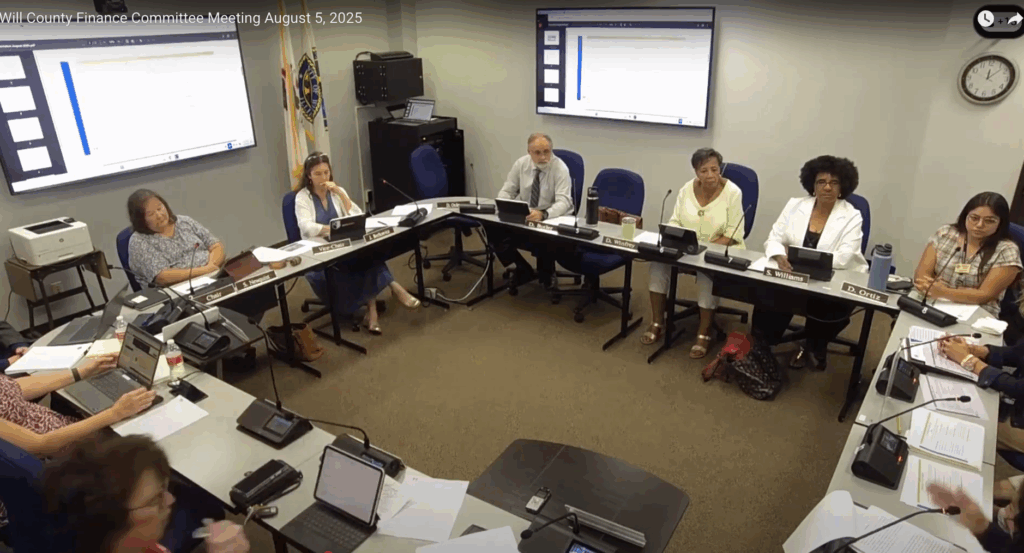
Will County Board Members Demand Transparency in Cannabis Tax Fund Allocation
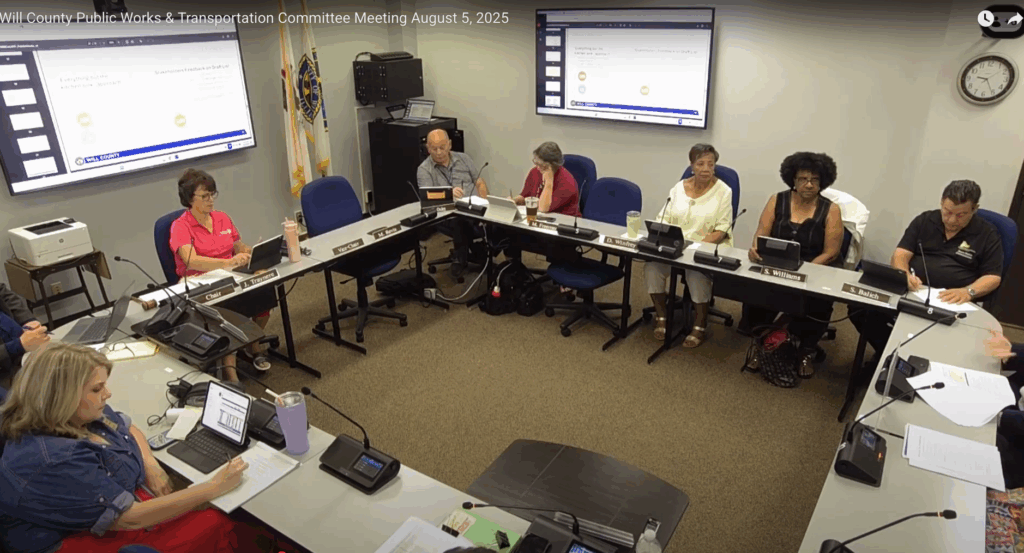
Homer Glenn Residents Push Back on 143rd Street Widening as Officials Signal “Tentative Agreement”
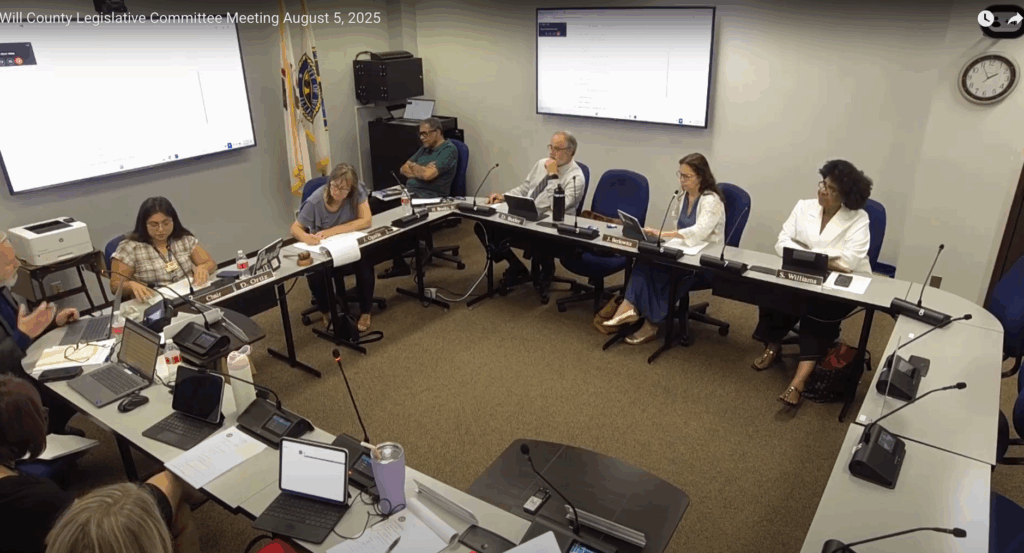
Will County Forges 2026 Federal Agenda Amid D.C. Policy Shifts, ‘Big Beautiful Bill’ Impacts
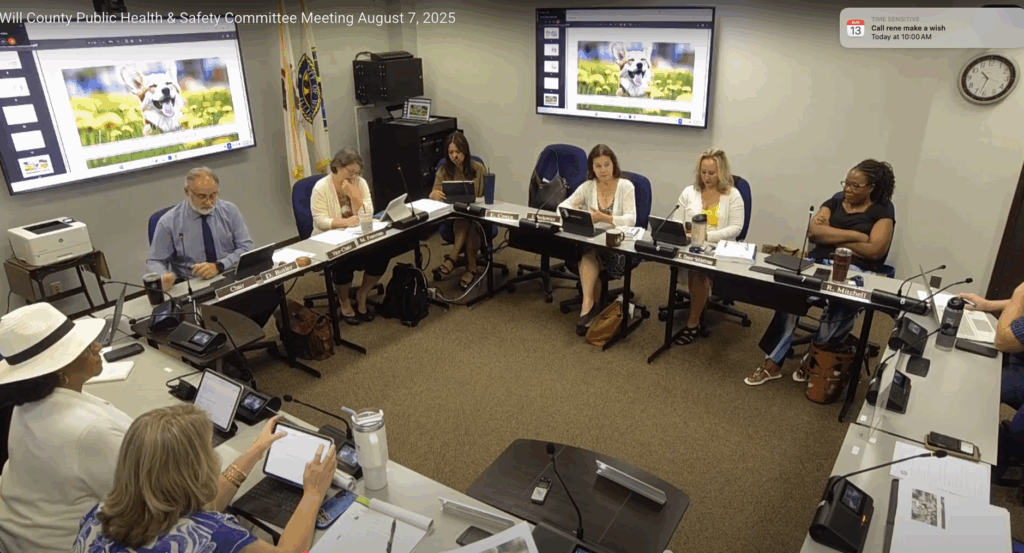
Health Department Seeks $1 Million Levy Increase to Prevent “Weakened System”
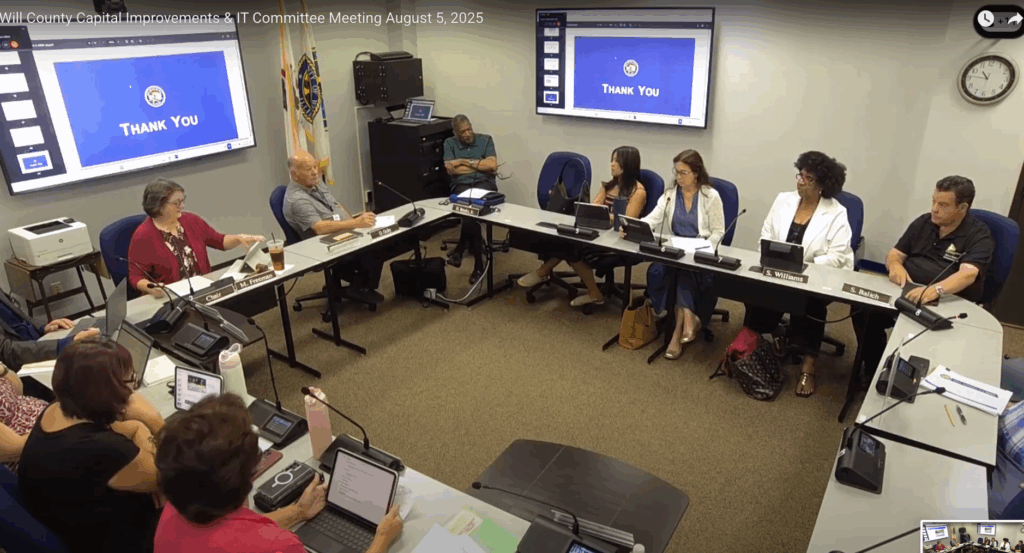
County Rolls Out New “OneMeeting” Software to Improve Public Access

Meeting Summary and Briefs: Will County Board Finance Committee for August 5, 2025
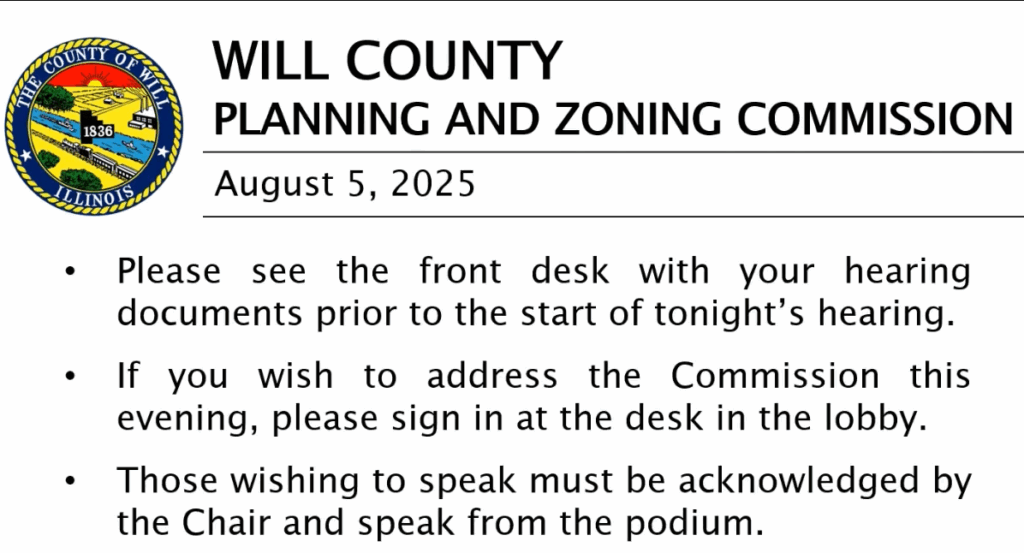
Will County PZC Approves Rezoning for Truck Repair Facility on Manhattan Road Amid Resident Concerns
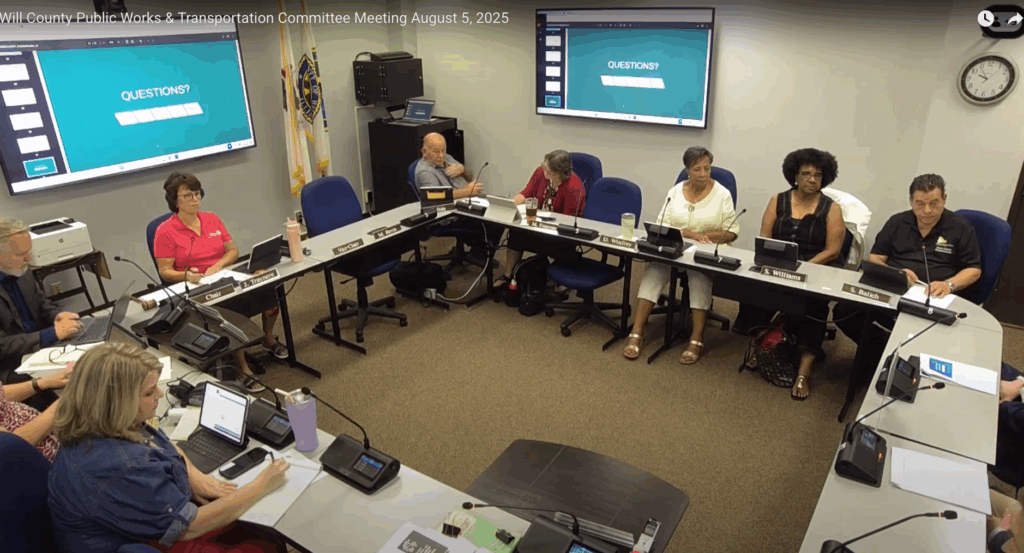
Key Stretch of Bell Road on Track for Thanksgiving Reopening, Committee Approves Additional Funds
